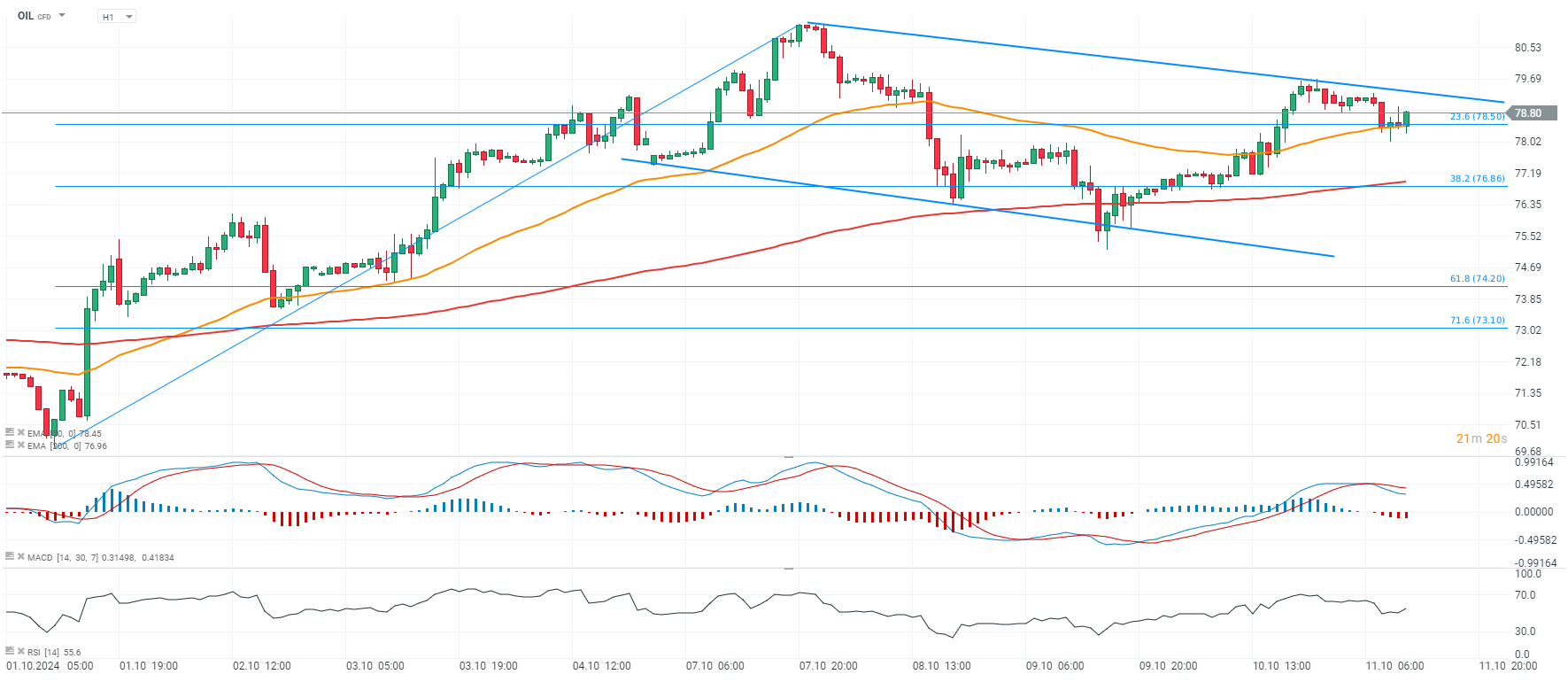Oil has been in the spotlight of the markets in recent weeks and appears to be on track to close another second upward week near $79 per barrel Brent (OIL). Yesterday, Israel's war cabinet, led by Netanyahu, debated a military response to Iran. The response still hasn't happened, but more information is constantly coming in from the Middle East, showing the course of hostilities in Lebanon, with Tehran once again involved in commenting.
- It appears that the US side may be somewhat surprised by Israel's posture, and recent press reports indicated that President Biden and his advisors were surprised by a proposed plan for an escalation attack that Israel probably (albeit at an unspecified time) intends to carry out, hitting Iranian critical infrastructure. This was also suggested by Al-Arabiya TV.
- Yesterday's rocket attack on United Nations' army positions in Lebanon caused further controversy, after which the White House conveyed publicly that it would expect an explanation. Lebanon also announced that it is moving part of its army to the south, where it will repel attacks by the Israeli military, and Iran called on Jerusalem to stop bombing Lebanese residential buildings
- All indications are that Netanyahu intends to carry out a plan for 'total victory' over Hezbollah and does not want to stop the military operation in Lebanon until the goal is achieved. Such a scenario naturally implies an increase in tensions in the region and potentially another military move by Iran, which is under pressure from an 'Arab world' worried about the Lebanese situation.
- Fitch rightly noted that geopolitical tensions are effectively improving oil market sentiment, easing the globally still rather 'soft' demand environment. Israel seems determined to continue military operations in the region, and reported an attack on another Hezbollah leader, Wafiq Safa, who was seriously wounded.
- Oil market attention is also on a Saturday briefing, when China's finance minister is expected to announce additional stimulus measures to boost the economy. Investors and economists expect Beijing to use up to 2 trillion Yuan ($283 billion) in new fiscal stimulus as it seeks to promote GDP and restore investors confidence.
With the U.S. election looming, where Trump's victory could signal potentially stronger support for Israel from Washington, the situation in the Middle East threatens to really escalate, and an increase in tensions from current levels could lead to oil rebounding above $80 per barrel. Such a scenario will also be crucial for the US rate cut cycle, as higher fuel prices, which the Fed did not assume in September, could effectively limit the scale of policy easing in the US to a maximum of one cut this year.
Oil price chart (OIL, H1 interval)
Looking at oil, we see a potentially drawing bullish flag formation, where the key resistance level remains unchanged at $80 per barrel. A possible strong upward impulse could open the way to $90 per barrel. The bulls have managed to bounce off support at the 38.2 Fibo and 23.6 Fibo levels, largely due to persistently high tensions in the Middle East region. 
Source: xStation5
Daily Summary - Previous metals rebound, FOMC still see cuts
⏫Silver and gold rally ahead of FOMC minutes
Natural gas surges 4% amid US cold weather adn strong demand 📈What's next?
Silver jumps 3% as buyers step in after the crash 📈


